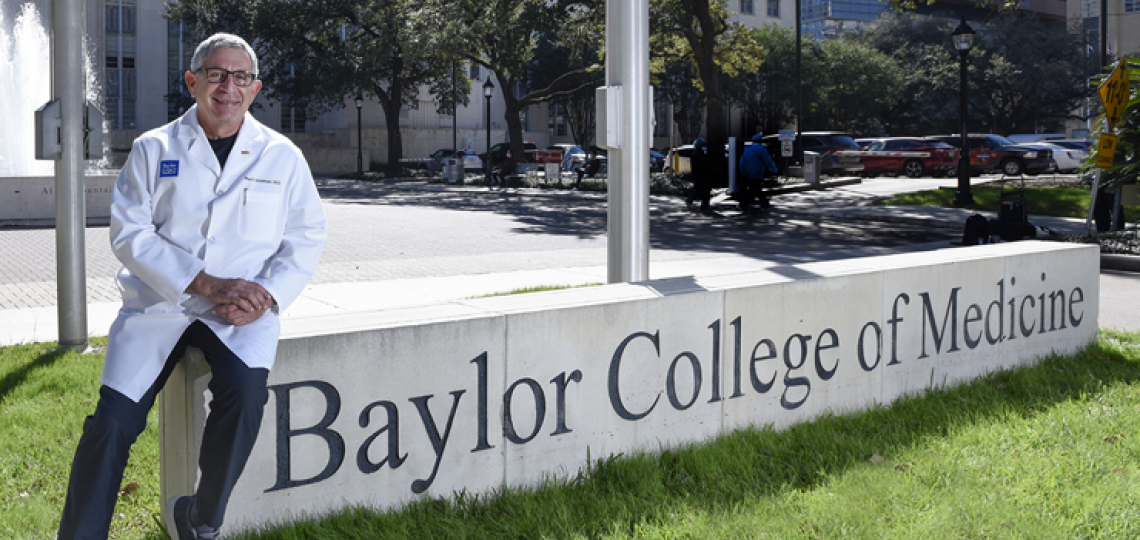
A Message from the President
Dear Colleagues,
At Baylor College of Medicine, faculty members like you are our greatest asset.
That is why we have compiled the policies, procedures and resources of the College in this handbook to help you find the information you need to contribute to our missions of excellence in research, education, patient care and service.
As an academic institution, Baylor highly prizes individual freedom of expression. As an institution with multiple components and constituents, we understand that our individual academic freedoms must always be couched within our commitment to the highest professional standards. The College’s policies are meant to supplement and support the standards of our professions as scientists and healthcare providers.
The nature of our work and the environment in which we function are ever-changing and therefore our policies frequently require adjustments and updating. This web-based handbook is designed to be a guide to the information and resources that support your work here at Baylor.
For questions regarding any of the policies or procedures in this handbook or clarification regarding any apparent contradictions with other information sources at the College, please speak with the leadership of your department, center or school.
As with all Baylor publications and policies, the handbook is subject to periodic revisions. We welcome your feedback. Please send comments or suggestions regarding improvements for future editions of the Faculty Handbook to us at president@bcm.edu and provost@bcm.edu.
Paul Klotman, M.D., President, CEO and Executive Dean
Faculty Responsibilities at Baylor College of Medicine
As expressed in the Compact Between Teachers, Learners and Educational Staff, the moral, ethical and professional behavior of all Baylor personnel is essential to the basic principles of the institution. For faculty members this requires a commitment to:
- Maintain currency in professional knowledge and skills.
- Ensure excellence of the educational curriculum.
- Be a model of professionalism in all interactions with faculty, learners, patients, colleagues, and staff.
- Respect all faculty, learners, patients, colleagues, and staff as individuals, without regard to gender, age, race, national origin, religion, or sexual orientation; and oppose observed disrespect or bias.
- Nurture learner commitment to achieve personal, family, and professional balance.
- Recognize and acknowledge expressions of professional attitudes and behaviors as well as the achievement of quantifiable academic excellence.
- Respond vigorously to unprofessional behavior and indications of abuse or exploitation of faculty, learners, patients, colleagues, or staff.
- Create a safe environment in which faculty, learners, and staff can communicate any concern about breaches of this compact.
- Accept responsibility for instilling these attributes in learners and faculty for whom you have responsibility.
- Avoid conflict of interests, report conflicts that exist and follow Conflict of Interest management plans.
- Report all outside activities annually.
- Report mistakes, waste, and all unprofessional behavior when observed.
Designated faculty of the institution additionally have responsibility for the content, quality and effectiveness of the academic programs including admissions, curriculum, review of students’ academic progress and recommendation for conferral of degrees.

Table Of Contents: Baylor College of Medicine Faculty Handbook
The Faculty Handbook is a web-based compilation of the policies, procedures and resources pertaining to faculty members across Baylor College of Medicine's mission areas of education, research, healthcare and community outreach. By linking to source documents, the handbook is intended to reference the most current information available. While many of the links listed herein lead to the College's public website, some will require your BCM login to access the intranet.
Faculty Affairs
Faculty Procedures
(Downloadable PDF documents)
Faculty Policies
Faculty Benefits
(Baylor login required)
- Faculty Benefits Overview
- Health & Wellness Services
- Employee Assistance (counseling for personal, family and work issues)
- Family & Medical Leave Act (including childbirth, adoption and caregiving for immediate family)
- Medical Leave
- Sick Pay (including childbirth and adoption leave)
- Accommodations for Breastfeeding Mothers
- Influenza Vaccination Policy
- Vacation Policy
- Volunteer Time Off from Work Policy
College Tenets
- Mission, Vision and Values
- History of the Institution
- Code of Conduct (PDF)
- Academic Freedom Policy (Baylor login required)
- Notice of Nondiscrimination
- Affirmative Action and Equal Employment Opportunity Policy (Baylor login required)
- Disability Policy (Baylor login required)
- Diversity Policy
- Supplier Diversity Policy (Baylor login required)
- Faculty, Staff and Learner Advocacy Guidelines (Baylor login required)
- Policy Regarding Harassment, Discrimination and Retaliation
College Leadership & Organization
Corporate Compliance & Audit Services
(Baylor login required)
- Code of Conduct
- Integrity Hotline - (855) 764-7292
- BCM Corporate Compliance Program
- Compliance and HIPAA Policies
- Prevention and Detection of Fraud, Waste and Abuse
- Physician Sunshine Act
- Disclosure of Outside Interests Policy
- Audit Services
- HIPAA Privacy Program
- Security Compliance Program
- Billing Compliance Program
Research
- Research Resources (Baylor login required)
- Research Policies & Procedures (Baylor login required)
- Training Grants and Contracts
- Financial Conflict of Interest in Research (Baylor login required)
- Research Compliance Services (Baylor login required)
- Dan L Duncan Institute for Clinical & Translational Research
- Baylor Licensing Group
- Advanced Technology Core Labs
- Environmental Safety (Baylor login required)
- Research Affiliates
Education
- Academic Policies
- Accreditation
- Student Services
- School of Medicine
- Graduate School of Biomedical Sciences
- School of Health Professions
- National School of Tropical Medicine
- Education Affiliates
- Compact Between Teachers, Learners, and Educational Staff
- Educational Conflict of Interests Policy
- Learner Mistreatment Policy
Clinical Care
College Resources
Faculty Appointment & Promotion Guidelines
Baylor undertook a significant reexamination and revision of the guidelines for faculty appointments and promotions. These updates resulted in the following:
- Updated and broader definition of scholarship that is validated by peers and communicated beyond the College.
- A new "patient care single mission pathway" for clinicians with significant contributions as master clinicians, clinical administrative leaders, contributors to quality and safety, and clinical business innovation
- Explicit eligibility for academic promotion of a broad range of faculty members with terminal degrees in their fields.
- New standards for appointment and promotion of voluntary faculty members who work with Baylor learners in clinical settings.
- New forms of evidence that faculty members may use to demonstrate excellence in areas such as patient safety and healthcare quality, academic leadership and innovation/business development.
Faculty Affairs Internal
Are you a Baylor faculty member looking for forms, policies or procedures relevant to your role or your career progression? Visit the Office of Faculty Affairs intranet site. (Baylor login required)








